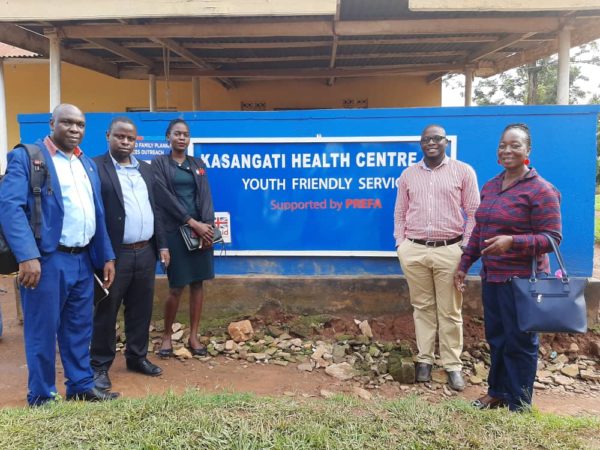
Despite record investment over the past five years, Uganda’s health care performance is still ranked as one of the worst in the world (186th of 191 nations) by the WHO. Corruption and mismanagement are leading reasons for this inadequacy. Health workers are not held accountable by the state which employs them and quickly discover they can get away with not coming to work, charging illegal fees, stealing medicines, etc. At the same time, corruption at the national levels leads to health worker salaries not being paid, medicines not being delivered, and budgets not being sufficient to repair decrepit facilities.
The HTI-Uganda program is designed to measure the influencing factors of context, incentives and decisions surrounding the management of public health systems and supply chains that taken together affect the availability and quality of public health services. The initial year-long project will monitor the operations of Kasangati Health Center IV, serving approximately 100,000 citizens, to test the impact and overall viability for national-level coverage. It will be implemented by the Anti Corruption Coalition Uganda (ACCU) with support from the Kasangati Rotary Club.
The project’s theory of change follows a “information– action–response” cycle whereby the implementing organization, ACCU:
- works with the community to document the state of public health services and where there are gaps;
- works in coalition with government officials and local businesses, and with PTF assistance, NGOs, donors, IFIs and the private sector at the international level, to find solutions and fill gaps; and
- reports back to stakeholders on changes made.
The result is expected to be constructive engagement between duty bearers and the community that is facilitated by better information and incentives for collective action.
Another innovative aspect of the program is its partnership with the local Rotary Club that will demonstrate local private sector support for improving the efficiency and quality of public health services. This multi-stakeholder approach seeks to reduce conflict and promote collective action that is focused on problem solving over “naming and blaming.”
The Citizen Action Platform (CAP), HTI-Uganda’s predecessor, aimed to reduce corruption and improve public healthcare in Uganda by analyzing citizen reports of corruption submitted through UNICEF’s U-report system (ureport.in). CAP was implemented from 2014-2018 and reached approximately 650 villages in Northern Uganda. One grant of $7k was made to ACCU in 2018 to complete the final phase of the program. Significant improvements were made to public healthcare in the region through the program, such as: electricity and running water restored at several facilities; increased availability of birthing- kits, bed nets and medications; improved adherence to cleanliness standards; and more. We have learned a great deal from the CAP experience that is being applied to HTI-Uganda.

